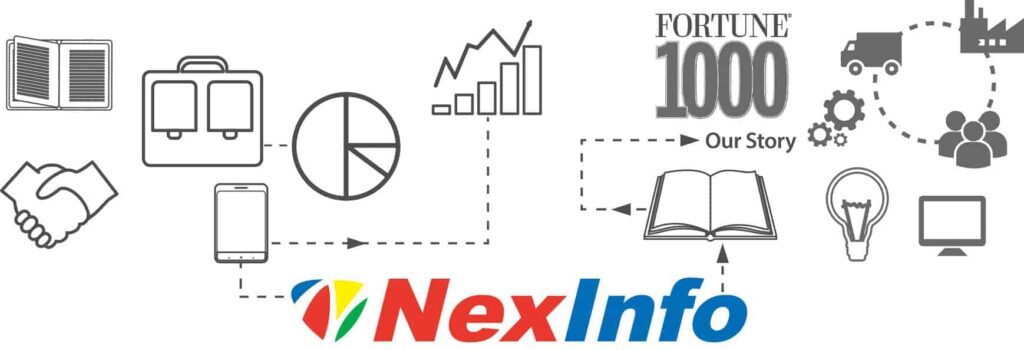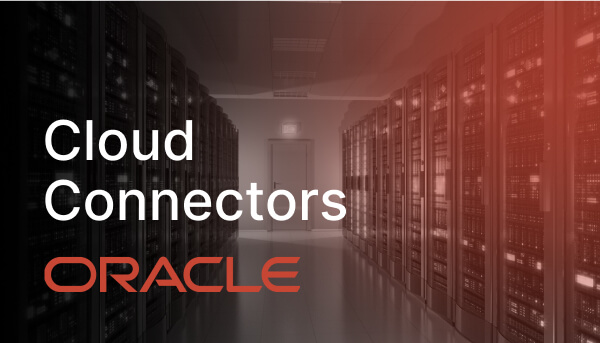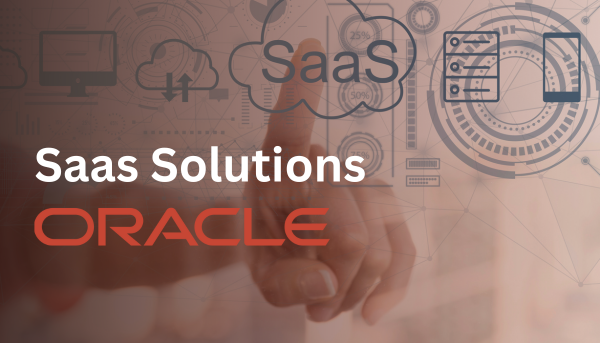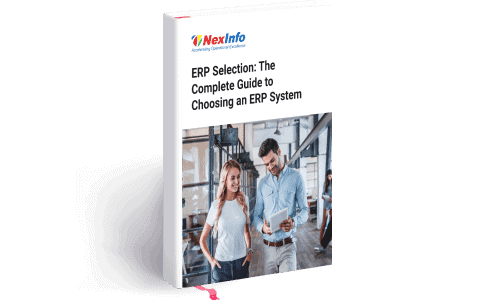As companies move to automate different business processes, it creates islands of information that do not correspond. Choosing an ERP system us an important factor.
Imagine what your business could achieve if it reached true synergy by centralizing the storage, analysis, and sharing of information. Proper ERP selection can help you realize these benefits and more for your business.
If you know the ERP selection criteria to look for, you can master the art of how to choose an ERP system with a solid due diligence process.
With that goal in mind, here is a list of criteria to include in your ERP selection process.
1. ERP for Your Business Needs
The way you operate your business sets your organization apart from your competitors. Consider what your value-creating differences are and use them to create your ERP requirements template.
When creating this template, speak to people at all levels to ensure you get input from management and the workers who will use the system daily.
Allow each department or team to brainstorm. Then, work with managers to determine overlaps, necessary inclusions, and desirable additions. It is also vital to balance needs against existing resources.
2. Technology Specifications
Choosing the right ERP vendor becomes a lot easier when you align your needs with vendors and their product offerings. These are some of the top features that might appeal to you:
- Self-patching and self-tuning systems that significantly reduce maintenance needs and potential downtime
- Autonomous database that provides uninterrupted access even while updating
- Ability to support mature and complex processes, such as total supply chain management
- Real-time monitoring and analytics so you can make full use of the data you collect
3. Technology Compatibility
Vendors often market ERP software as the software solution to all your business needs. While most systems are capable of doing so, chances are you might have plans to retain some of your existing legacy systems. Retention is especially likely if you have expensive contracts that have not yet timed out.
It is crucial to determine whether the ERP software is compatible with your existing infrastructure. Understanding compatibility can save you a lot of time and money in the future.
4. Tech Customization
When powering through your ERP selection project, remember that no software solution is perfect for every business.
Despite this, some vendors sell static software that cannot be modified. If the product offering meets your current and future estimated business needs, then it might not matter at all.
If you install a hybrid system that includes components of your legacy system, customization may be beneficial.
Customization should also be part of your ERP selection criteria if you have unique processes that differentiate your business from competitors.
5. ERP System Scalability
One method of testing whether an ERP system is customizable is how well it adjusts to businesses and sales volumes of different sizes. In today’s volatile market, this is a crucial feature for keeping businesses lean and agile.
Some vendors market themselves by pointing out the different sizes of businesses they serve. While this is a good indicator, it may not be a solid guarantee.
Review the contractual agreements and infrastructure to see how easy and affordable it is to scale operations up and down.

6. Return on Investment
A common mistake made during ERP projects is focusing on the price instead of the long-term ROI.
There are many small-scale solutions companies can use to centralize data for small organizations. However, none of these have the capabilities of a large-scale ERP system. Budget accordingly.
That said, the more you pay for a system, the more it will need to deliver for you to get a complete ROI.
A vendor that provides additional specs not used by your business does not improve your ROI. Thus, it is crucial to calculate ROI based on your specific user needs.
7. Production Support
After the ERP selection and implementation process is complete, it’s time to experience the system in action.
But what happens if technical issues arise? If the system goes down during an update, how do you get the support you need?
Choose a vendor with a solid post-implementation support team. Ideally, it should provide you with a designated account manager or project manager.
Having a dedicated point of contact ensures that your new ERP system will continue to perform at optimum levels.
Interested in learning more? Check out these blogs:
8. Internal Support
One of the benefits of building a diverse selection team from multiple departments is that you leverage organization-wide buy-in.
When you have buy-in at the lower-to-mid levels, it becomes much easier to convince the executive team to offer support.
If you lack support from upper management, then timing plays a crucial role in your selection criteria.
You might feel tempted to move forward with partial support, but this could hamper your ERP implementation process in the future. Focus on building support first.
9. Vendor Reputation
Whether or not the ERP solution you choose is successful depends on the vendor. The technical aspects are crucial, but none of that matters if the vendor is unreliable, lacks experience, and has a poor work ethic.
Ask yourself and the vendor the following questions:
- How long has this company been in business?
- Is it using proven technologies for its ERP offerings?
- What are some of the businesses that trust its ERP offerings?
- What do its existing customers have to say about it?
- How long do customers tend to remain before moving to a competitor?
10. Industry Standards
When selecting an ERP system, one way to narrow your options is to determine which ERP business solutions focus on specific industries. If those industries do not align with your own, cross them off the list.
Finally, you should ensure your final ERP software selection meets the compliance needs of your industry. Industries and departments with stricter compliance requirements include the following:
- Law firms
- Accounting firms
- Healthcare providers
- Insurance companies
- Educational institutions
- Life sciences companies
- Pharmaceutical companies
- Banking and financial services
- Human resources departments

11. Build an Internal Selection Team
The majority of businesses will partner with an ERP consultancy when selecting an ERP system, as consultants provide valuable advice that guides informed decisions about ERP selection. However, sometimes the best insight comes from within your organization.
One of the best means of determining how to choose an ERP system is by building an internal ERP selection team. As the entire organization will use the software, you should ensure that your team has at least one representative from every department. The members should be chosen based on their level of expertise rather than their job title or simply on merit.
Once assembled, you should designate one member of the team as the project manager for the selection project. This individual will ensure that the project moves forward in addition to delegating roles and responsibilities for the selection and implementation process.
Having an internal selection team handle the ERP selection process not only leads to better decision-making, it also empowers your employees by giving them a sense of ownership over ERP software selection. This is crucial, as they will be the ones using the software solution daily.
12. Strategic Data Management
Among the most significant ERP selection criteria is how the ERP software handles data processing and management. When your team decides upon an ERP vendor and begins the ERP implementation process, migrating the data from your existing system to the new one is a crucial step.
But before you begin actively migrating your data to the new system, you need to determine whether or not the data is ready for migration. If you previously operated your business without ERP software, it’s likely that your data and business processes are spread out across several disparate systems.
As a result, your ERP selection team needs to develop a strategy that ensures a seamless migration of your data during the early stages of the ERP selection process. This strategy serves as the roadmap for your migration while cleansing your data and eliminating duplicate information.
Having a data management strategy in place also helps to reduce data inaccuracies, which is one of the main reasons why ERP projects get stalled or delayed. It’s also important to realize that data cleansing should be handled internally, as ERP vendors seldom undertake this task.
13. Schedule Demos With ERP Vendors
Just as is the case with many products and services on the market, it often helps to try before you buy. If you are new to ERP software selection, seeing an ERP system in action to understand how it will enhance the management of your business processes can be beneficial.
Once you’ve shortlisted the vendors whose products your business is interested in learning more about, send them your requests for proposals (RFPs) which should list your business’s unique requirements.
The RFPs should also include a demo script, which allows the ERP vendor to develop a customized demonstration that highlights how the ERP software aligns with your business’s requirements. To further personalize your experience, you can even include some actual data for the ERP system to process during the demo.

14. Determining Business Readiness
Selecting an ERP system is a large undertaking for any business. Before you decide which ERP vendor and ERP consultancy to partner with, you should take some time to determine how prepared your business is for the new software solution with a business readiness assessment.
Change is constant in the corporate world, and how your business responds to major changes is a determining factor of its long-term success. This is the primary purpose of a business readiness assessment.
Completing the assessment is a crucial aspect of the ERP selection process. The results help your project manager and selection team determine the alignment of your business, its level of resistance toward significant changes, and its ability to take the selection project to completion.
The assessment also examines the extent of the changes. ERP projects that require larger-scale modifications require more business readiness than those that only make slight changes to your daily operations.
When you know the amount of change required, your ERP implementation team can subsequently develop a change management strategy. This strategy provides the framework for communication and training required for your staff.
15. Ensuring Seamless Integration
Like any other form of software or technology your business implements, ERP solutions need to seamlessly integrate with your existing business processes.
A seamless integration not only ensures a smooth transition to the new software solution but also helps you maintain business continuity.
There are several elements that are crucial to a seamless and successful ERP integration:
- Understand Your Goals: If you are implementing an ERP system for the first time, it’s important to know what you want to achieve with the software. If you’re upgrading or replacing existing ERP software, you should have a good idea of the changes you want to see with the new system.
- Hosting Methods: As part of the ERP selection process, you should know if your new system will be hosted on-premises or within the cloud.
- Expert Insight: If you’re still wondering about how to choose an ERP system and the benefits it brings to your business, consider partnering with an ERP consulting company that specializes in the ERP software you want to implement.
- Address Integration Requirements: Some of your business processes, such as CRM, for example, may require ERP software integration in order to function properly. Before you begin the selection and implementation processes, speak to your ERP consultant about the software’s compatibility with your existing systems.
- Examine Potential Enhancements: A top-quality ERP system helps you accomplish your current goals, but what about your future goals and the potential expansion of your business? Keep a list of any future objectives and revisit them when you’re ready to enhance or upgrade your ERP software.
Support Your Team: A good ERP requirements template should include communication and support for the employees who will be using the new software solution. In addition to creating a selection team and appointing a project manager, you should ensure that your employees receive advance notice of the upcoming changes. You should also allow time for them to be properly trained on the ERP software so they can get the most out of it.

16. Mitigating Risk
Enterprise-level technology projects like ERP implementations seek to improve the efficiency of business processes. However, they carry some inherent risks if certain processes are neglected.
For example, without the guidance of an internally designated project manager or expert ERP consultant, the project may lack direction or focus, which increases the risk of cost overruns.
ERP projects can also fail without proper testing measures in place prior to launching the new ERP system. Launching a complex software solution like an ERP system should be done carefully, with rigorous testing occurring regularly to weed out potential issues that could place the entire project at risk.
Management also has to be on board with ERP projects for them to succeed. Because ERP solutions are a form of business technology, upper management sometimes views ERP software selection as an IT project. While IT certainly plays a role in this process, ERP selection is a team effort.
If upper management simply hands off selecting an ERP system for the IT department without seeking proper support from a recognized ERP authority, the integrity of the project could be put in jeopardy.
17. Post-Launch Support
There is still work to be done on your ERP implementation project after the system goes live. With the help of your selection team and ERP consultant, you need to ensure that you receive ongoing support for your ERP software from either the ERP vendor or the consulting service.
The good news is that many ERP consulting companies offer proactive managed support services for ERP solutions. These services remediate technical issues while ensuring your software solution operates at peak performance.
You may also want to take some time post-launch to meet with your team to develop a plan for the future. If your business expands or if ERP software upgrades are required later on, the ERP system will need to be rescaled accordingly in order to adapt to the changes.
Implement Your ERP System With Confidence
NexInfo has over 23+ years of experience delivering ERP solutions to organizations around the world.
Partnering with NexInfo gives you access to a rich pool of resources that include integrated solutions and talented professionals. The consultant team can also work with you to ensure you understand and use the full potential of the ERP software you choose.
Want to learn more about how proper ERP selection benefits your business? Download the eBook for a full breakdown of features and costs. NexInfo’s consultants are also standing by to help you get your ERP system up and running.








